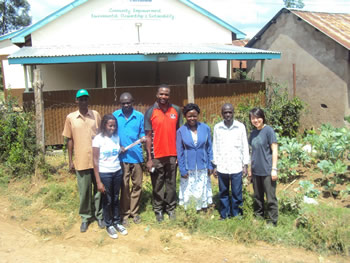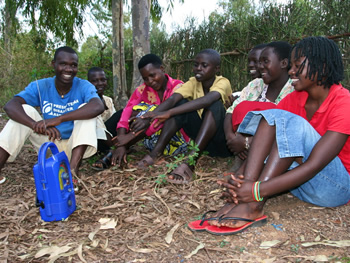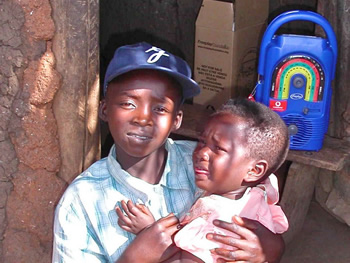Rural Energy Enterprises in Rwanda
- Jackie Bourne

- Jun 30, 2022
- 3 min read
The Weza foot-powered generator, designed and patented by Freeplay Energy, is at the centre of a new jobs and income-generation project in Rwanda supported by microfinance. The project aims to create sustainable rural businesses that use the foot-powered Weza.
In partnership with CARE Rwanda, the Cornell University Centre for Sustainable Global Enterprise, the Massachusetts Institute of Technology (MIT), and the Kigali Institute of Science and Technology, the project won a World Bank Development Market Place Energy Award in 2006.
The project aims to create sustainable rural businesses that use the foot-powered Weza to provide energy services for basic needs, such as communications and LED lighting. Affordable and accessible energy is vital for social and economic development. Where there is sustainable growth, there is also access to energy. The Weza has the potential to reduce poverty and enhance the quality of life, not only for rural Rwandans, but for populations across Africa.
In an attempt to give rural communities increased access to energy, Freeplay Energy is supporting rural energy entrepreneurs who will use Freeplay's latest innovation, its portable and decentralized foot-powered generator (appropriately called the Weza, which means power in Swahili), to sell energy services, such as cell-phone and portable light charging, to their local communities. Freeplay has developed a suite of accessories for the Weza including golf-ball sized LED lights that can be recharged 20 at a time and an adapter that can charge up to 8 cell phones at once. "Not only does this allow entrepreneurs an opportunity to generate a modest income, but it also allows rural communities to have access to the light and power that they most desperately need," says Sameer Hajee, Freeplay's Global Business Development Manager. Local NGO and MFI partners will help to select entrepreneurs and equip them with business start-up kits, training and low-risk financing. "The idea is that entrepreneurs would use a microfinance loan to purchase the Weza and then use part of the income from their business to make loan repayments," adds Hajee.
Although the intention is to implement this program throughout the developing world, Freeplay will be selecting a few countries to start. Hajee further states, "We see tremendous potential to quickly scale up this initiative throughout the developing world, especially given the overwhelming interest from the public sector to help implement the business model on the ground. However, we are looking to select a few countries, those where we believe we will have immediate impact, to test our model."
With the help of CARE Rwanda, the company is currently in the process of implementing its business model in Rwanda, a country that is 5% electrified and in which 93% of the population lives in rural areas.
Update from the Field
In January 2007, Midi Berry, Weza Pilot Project Manager, headed to coordinate the launch of the pilot in Rwanda. Weza training began on 16th January at Kinihira and by the end of February, 128 Weza Pioneers had been trained in Weza use and business skills.
CARE encouraged associations that they had already trained to manage savings and loans to join the Weza project. The response was immediate and positive. A micro-credit line was set up to enable 40 Weza Enterprise groups to start their own rural energy businesses and provide valuable community services. Groups will repay their micro-loans out of income generated by cell phone charging and LED light rentals.
Midi Berry reported: "Rural Rwandans have greeted the Weza with enthusiasm. Demand for training and for Weza enterprise loans is already more than double pilot project capacity, and still growing. Freeplay Foundation has been asked to support additional Weza businesses in Rwanda and to replicate the project in other countries.
The Weza project is exciting: it brings renewable energy to areas without electricity, generates jobs and income, and teaches people transferable business skills. Weza enterprises can stimulate community interaction, and new forms of social and economic development."












Comments